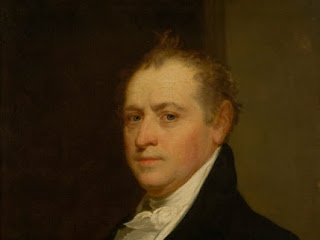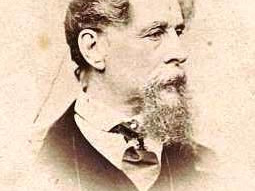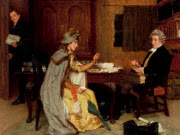Nicholas R. Parrillo, Yale Law School, has posted A Critical Assessment of the Originalist Case Against Administrative Regulatory Power: New Evidence from the Federal Tax on Private Real Estate in the 1790s, which is forthcoming in volume 121 of the Yale Law Journal (2021):
The Supreme Court is poised to toughen the nondelegation doctrine to strike down acts of Congress that give broad discretion to administrators, signaling a potential revolution in the separation of powers. A majority of the Justices have suggested they are open to the sweeping theory that all agency rulemaking is unconstitutional insofar as it coerces private parties and is not about foreign affairs. If adopted, this theory would invalidate most of the federal regulatory state. Jurists and scholars critical of rulemaking’s constitutionality base their claims on the original meaning of the Constitution. But these critics face a serious obstacle: early Congresses enacted several broad delegations of administrative rulemaking authority. The critics’ main response has been that these early statutes don’t count, because they fall into areas in which (say the critics) the original nondelegation doctrine did not apply, or applied only weakly: non-coercive legislation (e.g., giving benefits) or foreign-affairs legislation.
This Article finds that the originalist critics ofrulemaking are mistaken to say that no early congressional grant of rulemaking power was coercive and domestic. There is a major counter-example missed by the literature on nondelegation, indeed by all of legal scholarship, and not discussed more than briefly even by historians: the rulemaking power under the “direct tax” of 1798. In that legislation, Congress apportioned a federal tax quota to the people of each state, to be paid predominantly by owners of real estate in proportion to their properties’ respective values. Thousands of federal assessors assigned taxable values to literally every house and farm in every state of the Union, deciding what each was “worth in money”—a standard that the legislation stated but did not define. Because assessors in different parts of a state could differ greatly in how they did valuation, Congress established within each state a federal board of tax commissioners with power to divide the state into districts and to raise or lower the assessors’ valuations of all real estate in any district by any proportion “as shall appear to be just and equitable”—a phrase undefined in the statute and not a term of art. The federal boards’ power to revise valuations en masse in each intra-state tax district is identical to the fact pattern in the leading Supreme Court precedent defining rulemaking. Thus, each federal board in 1798 controlled, by rule, the distribution of the federal tax burden within the state it covered.
Oliver Wollcott, Jr. (wiki)
This Article is the first study of the federal boards’ mass revision power. It establishes that the mass revisions (a) were often aggressive, as when the federal board in Maryland raised the taxable value of all houses in Baltimore, the nation’s fourth-largest city, by 100 percent; (b) involved much discretion, given serious data limitations and the absence of any consensus method; (c) had a major political aspect, as the federal boards were inheriting the contentious land-tax politics that had previously raged within the state legislatures, pitting the typical state’s rich commercial coast against its poor inland farms; (d) were not subject to judicial review; and (e) were accepted as constitutional by the Federalist majority and Jeffersonian opposition in 1798 and also by the Jeffersonians when they later took over, indicating the boards’ power was consistent with original meaning, or, alternatively, with the Constitution’s liquidated meaning. Vesting administrators with discretionary power to make politically-charged rules domestically affecting private rights was not alien to the first generation of lawmakers who put the Constitution into practice.
More broadly, this Article is the first in-depth treatment of the 1798 direct tax’s administration. It shows that the tax, measured by personnel, was the largest federal administrative endeavor, outside the military, of the Constitution’s first two decades. It is remarkable that today’s passionate debate on whether the administrative regulatory state violates the framers’ Constitution has so far made no reckoning with this endeavor.
--Dan Ernst






